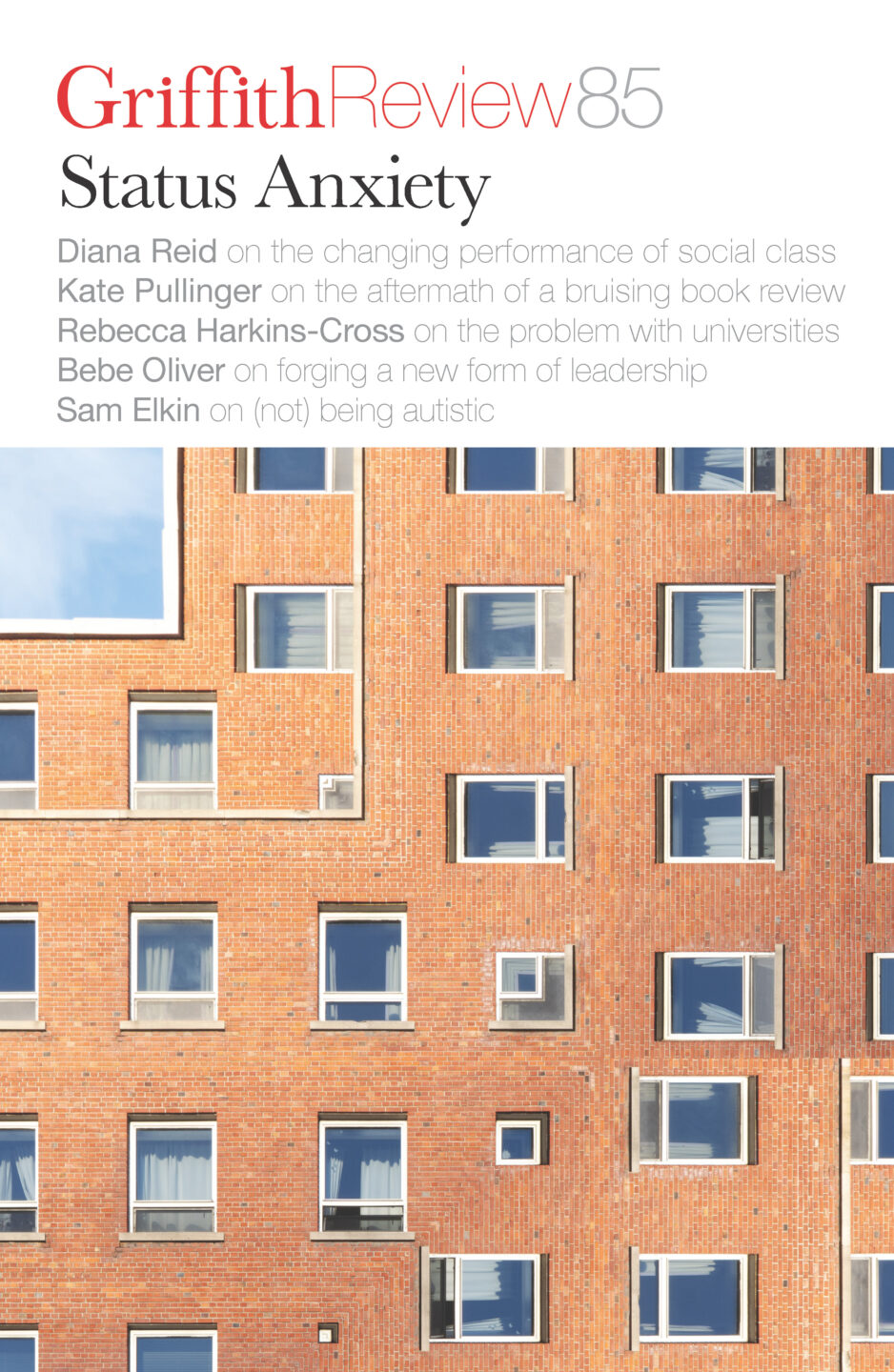Featured in

- Published 20240806
- ISBN: 978-1-922212-98-6
- Extent: 216pp
- Paperback, ePUB, PDF


Already a subscriber? Sign in here
If you are an educator or student wishing to access content for study purposes please contact us at griffithreview@griffith.edu.au
Share article
About the author

Bebe Oliver
Bebe Oliver is a descendant of the Bardi Jawi people of the Kimberley region of Western Australia and an award-winning writer, poet, illustrator, speaker and...
More from this edition

The Juansons
FictionIn the morning, she walks over to the Johnsons’ place and knocks on the door. Nothing. She calls the police, but once the officer on the phone understands that Norma is not the boy’s kin, he brushes her off. She makes coffee and goes into the living room and turns on CNN. A banner across the top of the screen reads: INSTANT E-DEPORTATIONS ACROSS US.

Put your house in order
In Conversation Poet, performer and musician Pascalle Burton has always been compelled by the visual possibilities of language and the imaginative dynamism of collage. Her multimodal...

Animal control
FictionShe’d seen her mother a couple of times since the lockdown ended, but it was still a shock. Margaret had lost some vital density that seemed ethereal, although it was obviously about her body – the protruding cheekbones, eyes sunk too deep in her head and hair a wispy cap across her scalp. Only her hands looked the same – her piano-playing hands resting neatly in her lap, long-fingered and surprisingly preserved. The rest of her was ghostly, and there was a blink when she looked at her daughter and the lights didn’t go on. SJ felt a momentary sinkhole: not that, not yet.